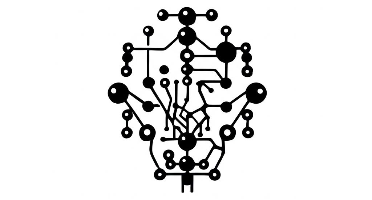
Ramin Barati
Project OwnerOversees system design and architecture, specifies algorithms and user stories, leads MeTTa/Hyperon integration, drives research direction, and manages stakeholder communication.
DEEP Connects Bold Ideas to Real World Change and build a better future together.
Coming Soon
We propose the development of a domain-agnostic tooling suite, comprising KGTool and KG Studio, to automate the construction, processing, and interrogation of knowledge graphs (KGs) for scientific literature. By integrating large language models with graph-based reasoning, the system will support end-to-end workflows: from entity/relation extraction through graph refinement and fact-grounded generation to interactive visualization. This infrastructure will enable reliable, explainable AGI reasoning over diverse research corpora.
This RFP seeks the development of advanced tools and techniques for interfacing with, refining, and evaluating knowledge graphs that support reasoning in AGI systems. Projects may target any part of the graph lifecycle — from extraction to refinement to benchmarking — and should optionally support symbolic reasoning within the OpenCog Hyperon framework, including compatibility with the MeTTa language and MORK knowledge graph. Bids are expected to range from $10,000 - $200,000.
Define requirements for both the application layer (KG Studio) and core library (KGTool). Research optimal features and methods to meet user needs and technical goals.
(1) Comprehensive list of key features and user stories (2) Selection of algorithms methods and techniques to implement (3) Curated set of real-world datasets and evaluation metrics (4) System architecture diagrams and design documentation (5) Detailed timeline for implementation tasks
$12,000 USD
(1) Feature list and user stories approved by stakeholders (2) Algorithms and evaluation plan validated for feasibility (3) Architecture and timeline reviewed and signed off
Develop a minimum viable product demonstrating core end-to-end scenarios implement evaluation tools and conduct initial benchmark tests.
(1) Finalized feature set and user stories (2) MVP including KGTool core functions API endpoints and basic KG Studio workflows (3) Evaluation toolkit for measuring KGTool performance (4) Interim report detailing benchmark results and insights
$24,000 USD
(1) MVP passes predefined functional tests for each workflow (2) Evaluation toolkit generates usable performance metrics (3) Benchmark report highlights strengths and areas for improvement
Complete all components package the framework for distribution produce full documentation and deploy a demonstration website.
(1) Final technical report with performance analysis and recommendations (2) Packaged releases of KGTool KG API and KG Studio (3) Comprehensive developer and end-user documentation (4) Roadmap outlining future research and development directions (5) Live demonstration website showcasing KG Studio
$24,000 USD
(1) All code and documentation published in public repository (2) Demo website operational and accessible to reviewers (3) Stakeholder approval of final deliverables and project completion
Reviews & Ratings
Please create account or login to write a review and rate.
Check back later by refreshing the page.
© 2025 Deep Funding
Join the Discussion (0)
Please create account or login to post comments.